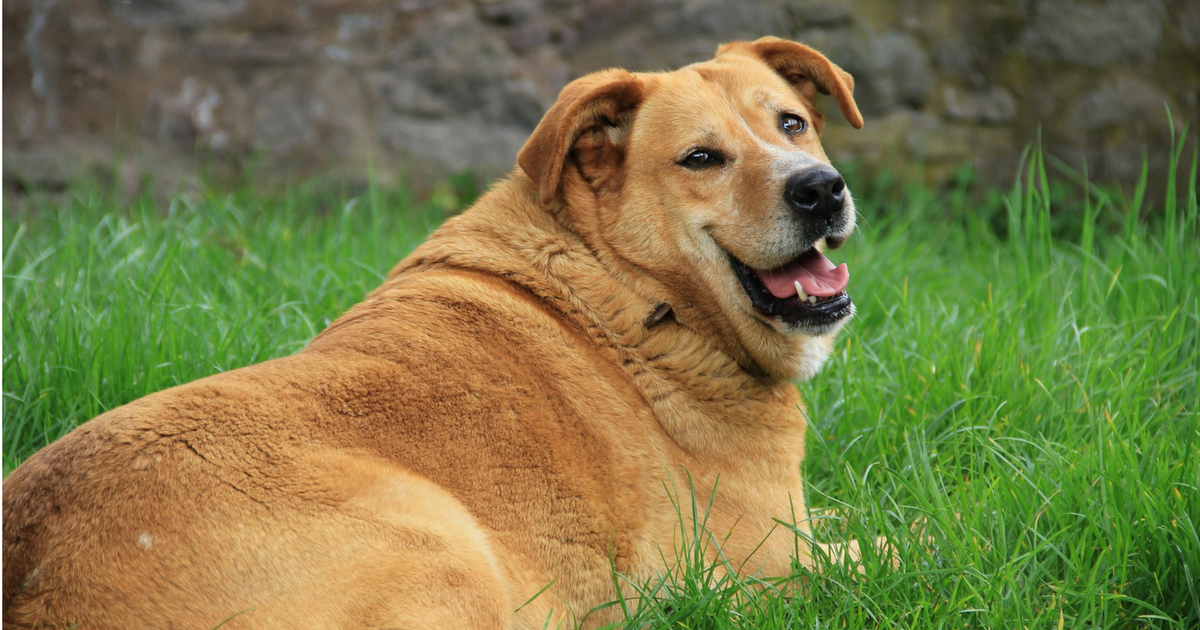
Some pet owners assume that their dog will stop eating once full. But just like humans, all dogs – puppies, adult dogs, and senior dogs – are prone to overeating. One reason is that eating triggers an emotional high with dogs the same way it does in humans. And just like humans, the natural survival instinct is always present. If food is readily available, the hormones will kick in and overeating occurs just in case of future famine.
According to surveys, over half of our nation’s dogs are overweight. This means almost 40 million dogs are at risk for developing arthritis, diabetes, kidney and heart disease, high blood pressure and many forms of cancer.
You might not even notice it at first – especially if your dog is still a puppy. People think that puppies are supposed to be round, cuddly balls of fur. But if you compare your puppies’ sizes, you’ll see that some of them weigh more than they should.
You want to take care of that early in your dog’s life while still a puppy to prevent health complications in the future.
Adult dogs will start to slow down just a little from their younger years. They’re not as active, so it’s easier for them to gain weight. The nutritional needs change, and they don’t need as many calories as they once did, yet some owners continue to feed them the same amount of food.
Senior dogs gain weight the easiest because when they get old, their joints don’t work as well. They have aches and pains and they just don’t enjoy the high intensity running and jumping and playing that they once did.
Steps to Take to Get the Weight Off
When you notice that your dog has put on weight, you need to take steps to get that weight off. It will help your dog feel better and live longer if he maintains healthy body weight. When it comes to living a long, pain-and disease-free life, research proves our most powerful partner is a daily exercise. Speaking of partners, anyone with a dog has a built-in, no-excuse exercise buddy. For dogs, as little as 20 to 30-minutes of brisk walking is all it takes to boost immune function, improve cardiovascular health and reduce many behavioral problems. For cats, try playing with a laser pointer, remote-controlled toy or ball of paper for 5 to 15 minutes each day. Do yourself and your dog a favor and commit to daily walks, rain or shine. The health benefits of walking extend to both ends of the leash. High blood sugar is hijacking your weight loss. It doesn’t matter how much you exercise. When sugar is high, it’s almost impossible to lose weight. Think it might be high blood sugar that’s keeping your dog fat? Here are a few ways to tell:
-Getting tired daily
-Frequently thirsty
-Rapid heartbeat
-Dry skin
-Shortness of breath.
If you notice one or more of these symptoms, it could be high blood sugar that won’t let your dog lose weight. Here’s the thing: We have found a great solution to bring down high blood sugar. What that means for you: lowering dogs' blood sugar, will melt pounds in most cases.
Making sure that you feed your dog the correct portion size is important for helping him lose weight. If you have a puppy, make sure that you’re feeding him puppy food in portion-controlled sizes because his nutritional needs are higher than an adult or senior dog’s.
You can find the correct portion size by following the guidelines on the food or by talking to your veterinarian. With an adult or senior dog, it may be that he’s getting too many treats in addition to his dog food.
Snacks
If he’s eating portion-controlled amounts of his food but is still overweight, then you need to cut down on his treats and watch his snacking. But don’t eliminate his treats altogether.
My vet once gave me a sample of dog treats that were about a quarter-inch in diameter. She explained that the dog doesn’t really care about the size, they just want…something. A couple of supplements may help keep your pet (and you) fit and trim. Almost every dog, cat and person can benefit from taking a daily omega-3 fatty acid supplement. These powerful fish oils pack a potent anti-oxidant punch that has been proven to help prevent and treat numerous diseases. In addition, they may help ease achy joints and perhaps encourage weight loss. L-carnitine has been shown to aid weight loss and promote lean muscle mass in some studies. I’ve been prescribing (and taking) l-carnitine for over 13 years and been impressed with the results. Ask your veterinarian if either (or both) of these supplements make sense for your pet’s condition.
When determining what your dog’s calorie needs are, you must factor in his current weight based on what his weight should be. But you also must figure in how active he is and his age before you choose the right diet for him.
If you’re doing all the things you can to help your dog lose weight and it’s still not working, then you might want to try changing dog food to one that’s low calorie or visit your vet for advice. It’s the responsibility of each of us to help our pets maintain a healthy weight. Just as you’d never walk your dog without a collar and leash or allow them to eat only pizza and ice cream (which many dogs would LOVE!), it’s up to pet owners to feed healthy, nutritious foods and treats and exercise daily. By using these seven simple suggestions, you’ll be on your way to your pet’s best – and healthiest – year yet!
More Articles:
Nylabone Advanced Oral Care Finger Brush 2 pack Review
Taste of the Wild Sierra Mountain Canine Formula with Roasted Lamb 5lbs Review




